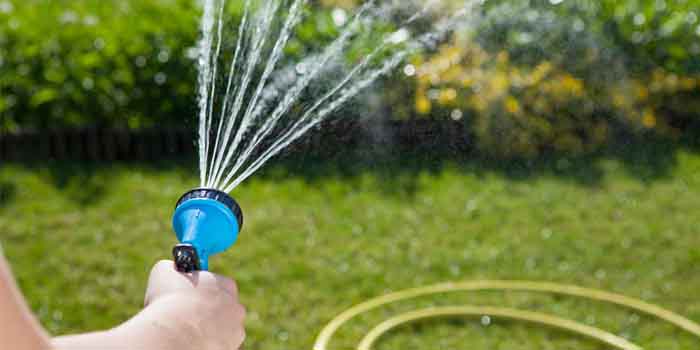
Importance of Saving Water in Industries: A Tech Perspective
Share
In today's fast-paced industrial world, the importance of saving water in industries cannot be overstated. As tech professionals and enthusiasts, understanding the role of water conservation in industrial settings is crucial for creating sustainable and efficient processes. With water scarcity becoming an increasingly pressing issue, industries must adopt innovative solutions to manage water usage and contribute to a healthier planet.

Why Industries Must Prioritize Water Conservation
Water is a fundamental resource for many industries, from manufacturing to food processing. However, industrial activities are often water-intensive, leading to significant consumption and waste. The importance of saving water in industries lies in reducing environmental impact, lowering operational costs, and enhancing the sustainability of processes.
Industries can adopt various strategies to conserve water, such as implementing EPA-recommended practices and exploring smart water efficiency solutions. By doing so, they can minimize water wastage and promote responsible water usage.
Technological Innovations in Water Conservation
Technology plays a vital role in enhancing water conservation efforts within industries. Innovations such as IoT sensors, data analytics, and automation can optimize water usage and identify areas for improvement. For instance, IoT sensors can monitor water flow in real-time, providing valuable insights into consumption patterns and detecting leaks swiftly.
Moreover, data analytics can help industries analyze water usage data to identify inefficiencies and develop targeted conservation strategies. Automation technologies can further streamline processes, ensuring precise water usage and reducing human error.
Case Study: Implementing Water Recycling Technologies
Many industries are now turning to water recycling technologies to enhance their conservation efforts. By reusing water within their operations, industries can significantly reduce their freshwater consumption. This not only conserves water but also reduces the strain on local water resources.
For example, water recycling systems can be integrated into industrial processes to treat and reuse wastewater. This approach not only conserves water but also aligns with sustainable development goals, making it a win-win for industries and the environment.
The Economic Benefits of Water Conservation
Beyond environmental benefits, water conservation in industries also offers significant economic advantages. By reducing water usage, industries can lower their utility bills and save on operational costs. Additionally, industries that adopt sustainable practices can enhance their brand image and appeal to environmentally conscious consumers.
Implementing water-saving measures can also mitigate risks associated with water scarcity, ensuring business continuity and resilience. For more insights into the economic benefits, consider exploring benefits of water conservation in various sectors.
Challenges and Solutions in Industrial Water Conservation
While the benefits of water conservation are clear, industries often face challenges in implementing effective measures. These can include high initial investment costs, lack of awareness, and resistance to change. However, the integration of technology can address these challenges by providing cost-effective and efficient solutions.
Industries can also collaborate with governmental and non-governmental organizations to access resources and expertise in water conservation. By working together, industries can overcome barriers and achieve significant progress in their water-saving efforts.
Conclusion: A Call to Action for Tech Professionals
The importance of saving water in industries is a critical issue that tech professionals and enthusiasts must address. By leveraging technological innovations and implementing sustainable practices, industries can play a leading role in water conservation. It's time for the tech community to take action and contribute to a sustainable future.
For further reading and practical tips on water conservation, you can explore the American Rivers website.

FAQ
What are some simple ways industries can conserve water?
Industries can conserve water by implementing water recycling systems, using IoT sensors for leak detection, and adopting automated processes to optimize water usage.
How does water conservation benefit industries economically?
By conserving water, industries can reduce their operational costs, mitigate risks related to water scarcity, and enhance their brand image among environmentally conscious consumers.
What role does technology play in industrial water conservation?
Technology, such as IoT sensors and data analytics, helps industries monitor water usage in real-time, identify inefficiencies, and develop targeted conservation strategies.
